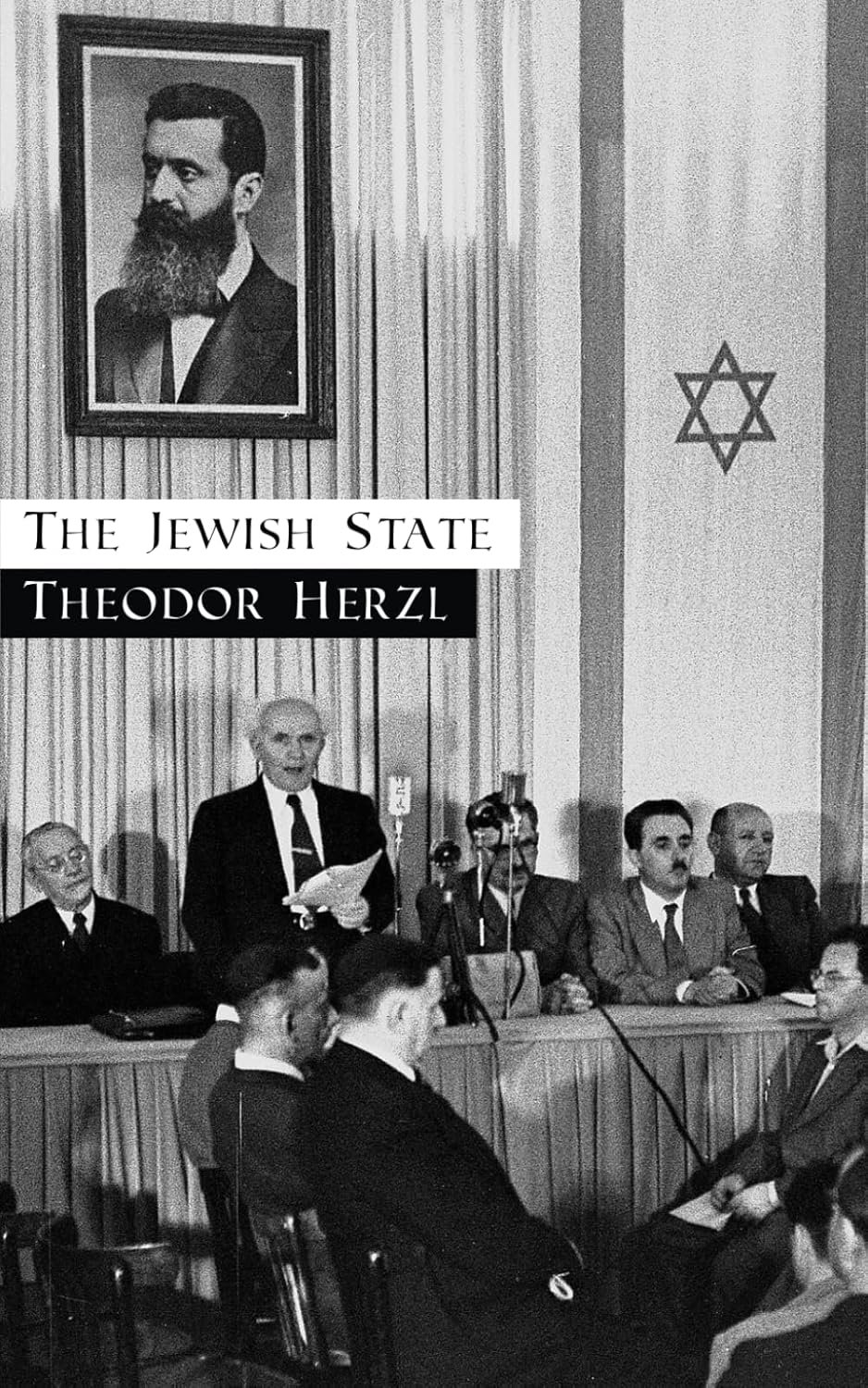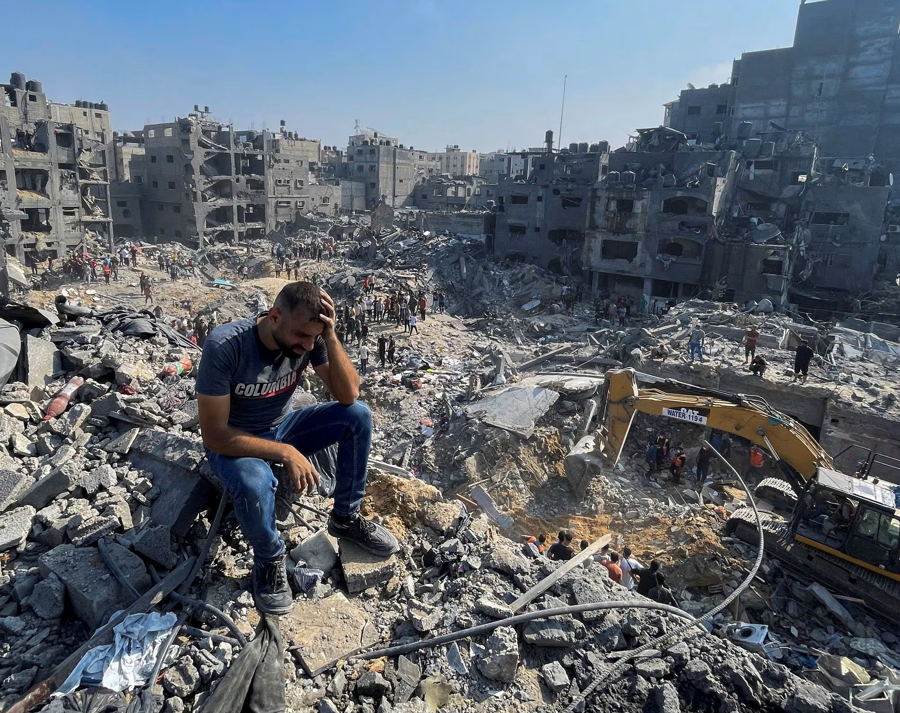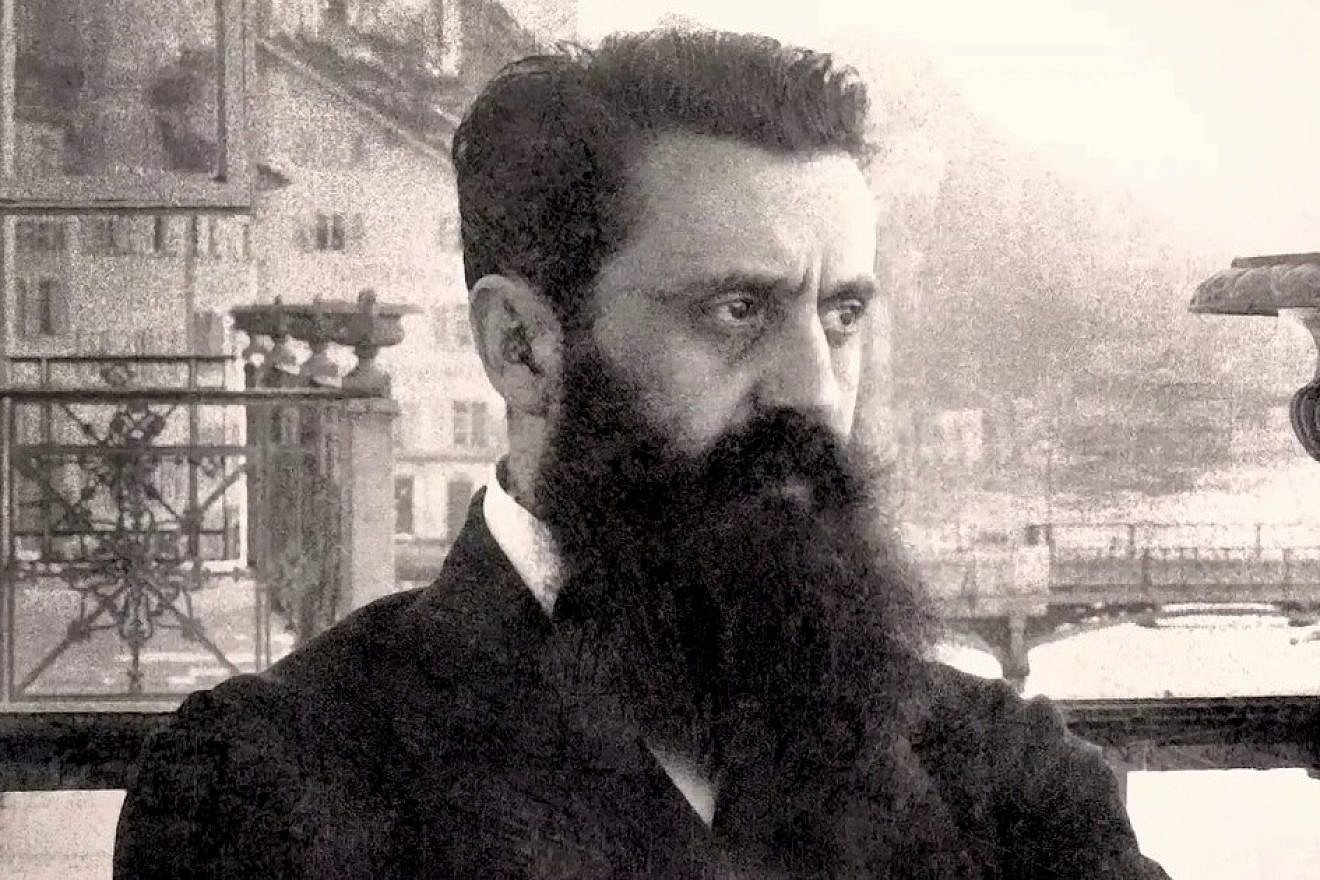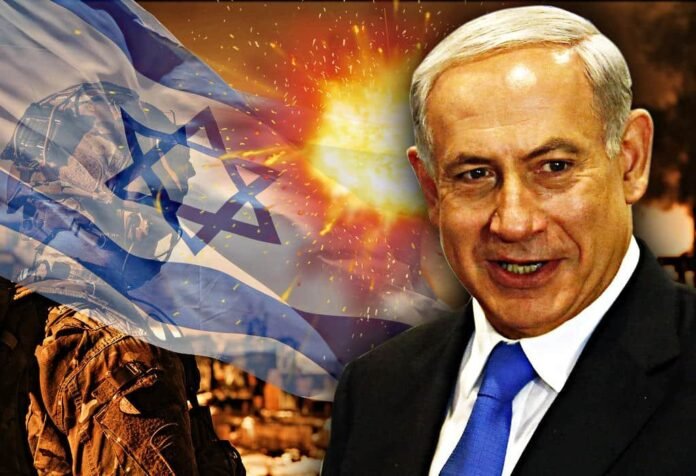Theodor Herzl, the visionary father of modern political Zionism, dreamed of a Jewish homeland founded on coexistence, mutual respect, and integration with the local populations. His writings, notably in Der Judenstaat (The Jewish State), outline a vision of peaceful cooperation with indigenous peoples, emphasizing the importance of building a state that benefits both Jews and their neighbors.
However, the reality of modern-day Israel starkly contrasts Herzl’s idealistic vision, particularly in the context of the displacement of over 800,000 Palestinians during Al-Nakba (“The Catastrophe”) in 1948 and the ongoing occupation of Palestinian territories more than 70 years later.

Herzl’s Vision of Coexistence
Herzl’s writings demonstrate a profound awareness of the need for peaceful coexistence. He explicitly stated that the establishment of a Jewish state should not come at the expense of others. In The Jewish State, Herzl wrote:
“We shall not come to throw anyone out, but to live with them in mutual respect and harmony.”
Herzl envisioned a state built through diplomacy, economic development, and respect for local populations. His approach was rooted in the belief that Jews could establish a homeland without displacing or harming the indigenous inhabitants of the chosen land. This vision, however, was not realized in the way modern Israel was established.

Al-Nakba: The Catastrophe
In 1948, the establishment of the State of Israel led to the forced displacement of more than 800,000 Palestinians from their homes and villages. Known as Al-Nakba, this event saw the destruction of over 500 Palestinian villages and towns, leaving countless families as refugees. The mass expulsion was not an isolated incident but rather a systematic campaign aimed at creating a Jewish majority in the new state.
The impact of Al-Nakba was devastating:
- Entire communities were uprooted, with many Palestinians fleeing to neighboring countries or becoming internally displaced.
- Generations of Palestinians have since lived in refugee camps, unable to return to their ancestral lands due to Israeli policies.
- The trauma of displacement remains a central aspect of Palestinian identity, symbolizing the loss of homeland and the denial of basic rights.

Seven Decades of Occupation
The displacement of Palestinians did not end with Al-Nakba. For over 70 years, Israel has maintained control over Palestinian territories, including the West Bank, East Jerusalem, and Gaza Strip. This occupation has been characterized by:
- Settlement Expansion: Over 700,000 Israeli settlers now live in the West Bank and East Jerusalem, in violation of international law. These settlements often come at the expense of Palestinian land and resources.
- Restriction of Movement: Checkpoints, barriers, and permits severely limit Palestinians’ ability to travel within their own territories, impacting access to education, healthcare, and employment.
- Military Control: The occupation is enforced by a heavy Israeli military presence, leading to frequent clashes, arrests, and human rights violations.
- Economic Strangulation: The blockade on Gaza has created dire living conditions, with limited access to essential goods, electricity, and clean water.

Betraying Herzl’s Vision
The ongoing displacement and oppression of Palestinians stand in stark contrast to Herzl’s ideals. Rather than fostering coexistence and mutual respect, modern-day Israel has pursued policies that marginalize and disenfranchise the indigenous Palestinian population. The systematic denial of Palestinian rights, coupled with the perpetuation of the occupation, undermines the moral and ethical foundations upon which Herzl’s vision was built.
A Path Forward
To honor Herzl’s vision, a fundamental shift in policy and approach is required. This includes:
- Ending the Occupation: Israel must end its military occupation of Palestinian territories and dismantle illegal settlements.
- Acknowledging Al-Nakba: Recognizing the historical injustices of 1948 and taking steps toward reparations and the right of return for Palestinian refugees.
- Promoting Equality: Establishing a framework for equal rights and opportunities for both Israelis and Palestinians, regardless of ethnicity or religion.
- Fostering Dialogue: Encouraging meaningful dialogue and reconciliation between the two peoples to build a future based on mutual respect and understanding.

Conclusion
Theodor Herzl’s dream of a Jewish homeland rooted in peace and coexistence remains an unrealized ideal. The displacement of Palestinians during Al-Nakba and the continued occupation of their lands represent a betrayal of Herzl’s vision.
By addressing these historical and ongoing injustices, there is hope for a future where the principles of dignity, equality, and mutual respect can prevail for both Israelis and Palestinians.
Read My BIG THINK SOLUTION for the whole Middle East here where all citizens; Jews, Christians and Muslims can live together as one in peace and freedom with LIBERTY AND JUSTICE FOR ALL
BIG THINK: 10 Compelling Reasons to Establish a United Middle East Union NOW!











